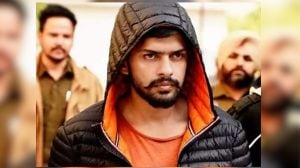Arrest warrant against Ex-Argentine president
The order to arrest former President Isabel Peron marked the widening scope of the investigation into Argentina’s past human rights abuses, as scrutiny expands beyond dictatorship-era crimes to the death squads that terrorised the nation prior to the 1976 coup.

The order to arrest former President Isabel Peron marked the widening scope of the investigation into Argentina’s past human rights abuses, as scrutiny expands beyond dictatorship-era crimes to the death squads that terrorised the nation prior to the 1976 coup.
Federal Judge Raul Acosta on Thursday ordered the arrest of the third wife of former political strongman Juan Domingo Peron, saying he has questions about her chaotic 20-month rule, a time when shadowy right-wing violence destabilised Argentina ahead of her political downfall.
There was no immediate comment from Isabel Peron, who has lived in exile in Spain since 1981.
The call for her detention followed the recent arrests in Argentina and Spain of two suspected leaders of the “Triple A” death squad that human rights groups call a precursor to state-sponsored terror waged by a 1976-83 junta.
Maria Estela Martinez de Peron— known as Isabel— was ordered detained in connection with the disappearance of leftist Hector Aldo Fagetti Gallego one month before she was ousted in the March 1976 coup that ushered in the bloody, seven-year dictatorship, authorities said.
Peron also was wanted for questioning about three decrees she signed calling on the armed forces to combat “subversive elements,” the judge’s spokesman said.
Political analyst Felipe Noguera noted that dozens of former police and military officers have been summoned for questioning since Argentina’s Supreme Court in 2005 annulled a pair of 1980s amnesty laws blocking prosecution of human rights cases.
Previously, efforts to bring alleged human rights abusers to justice focused on crime committed during the dictatorship, when thousands of suspected leftists were killed or disappeared.
Adolfo Perez Esquivel, the 1980 Nobel Peace laureate for his human rights work, told The Associated Press he believed the Triple A, short for the Argentina Anticommunist Alliance, was effectively part of a state structure and thus the beginnings of state-backed terror.
“Once and for all, we have to get to the bottom of this problem and find out how this terrorism was generated by the state,” Perez Esquivel said.
Peron was sworn in as president in 1974 after the death of her husband, the father of Argentina’s ruling political party and three-time president. But Argentina was convulsed by violence from leftist guerrillas and reprisals by death squads which set the stage for the dictatorship’s crackdown on dissent, a campaign known as the “dirty war.”





- 01
- 02
- 03
- 04
- 05


























